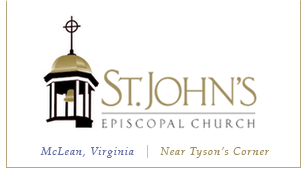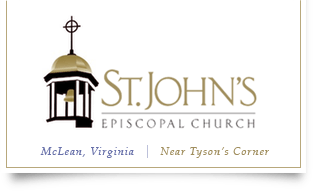From the Rector:
November 2025
As I write this message, I’m packing bags and preparing to leave for Fredericksburg to attend the 231st convention of the Episcopal Diocese of Virginia. I had to run out to replenish one of my travel-size toiletries, and in the corner of my eye I saw it: a Christmas decoration in the local Walgreens being taken out of the box and being placed on its hook! It was a giant plush stocking with an over-sized candy cane hanging out of it. And we’re still trying to figure out what to do with the extra Halloween candy in our house…
It’s hard to believe that 2025 marks the 60th anniversary of Charles Schultz’s A Charlie Brown Christmas. Having been around for 49 of those 60 years—and very easily having watched it multiple times a year for at least 41 of them–I have most of it committed to memory. And six decades later, his message still resonates.
It was only in adulthood—and after ordination—that I understood the not-so-subtle message that Schultz was emphasizing … was sharing—if I’m honest I was probably more of a Lucy than I care to admit.
Lucy van Pelt: “Look, Charlie, let’s face it. We all know that Christmas is a big commercial racket. It’s run by a big eastern syndicate, you know.”
Later, after Charlie is teased and bullied mercilessly for his shabby little tree, he cries out in tones of desperation, equal to those of any Old Testament prophet: “Isn’t there anyone who knows what Christmas is all about?”
And when we have found that peace, we will find that the burdens of frustration, outrage and stress start dissipating; in that space where peace has replaced all the “stuff”; we’ll find a place of warmth and security, where Jesus Christ our Savior can be born within our hearts.
The great 20th century preacher and educator, the Rev. Dr. Howard Thurman, gives some advice on how we might ask God to open our hearts to prepare that place where Christ can be reborn and refreshed, not just on December 24th or 25th—or even November 24—but perhaps daily, with the rising of the sun, as a reminder of that gift of renewal that is always open and available to us.
Lord, Lord, open unto me.
Open unto me, light for my darkness;
Open unto me, courage for my fear;
Open unto me, hope for my despair;
Open unto me, peace for my turmoil;
Open unto me, joy for my sorrow;
Open unto me, strength for my weakness;
Open unto me, wisdom for my confusion;
Open unto me, forgiveness for my sins;
Open unto me, tenderness for my toughness;
Open unto me, love for my hates;
Open unto me, Thy Self for myself;
Lord, Lord, open unto me! Amen.
–Meditations of the Heart (1953)
The Reverend Joshua D. Armstrong-Walters
Rector


